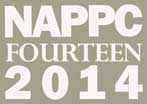 |
13th ANNUAL NAPPC INTERNATIONAL CONFERENCE |
|
|
Task Forces are cross discipline, short-term, project-oriented groupings designed to accomplish specific task(s). NAPPC partners will have the opportunity to provide input into groups on which they do not serve. New Task Forces will be created as needed. The Task Forces are made up of disparate, interested parties who work to accomplish one specific pollinator related task. List of 2014 Task Forces and Descriptions: Bee Friendly Farming – Promote Bee Friendly Farming registration through collaboration with NRCS and other local agencies that support on-farm habitat for pollinators. Bee Health – Determine priority criteria for 2015 Bee Health Grants and develop a sponsorship plan to increase support and partnerships for bee health research. Work to develop Bee MD APP. Bumble Bees – Develop effective analysis to certify clean stock in captive breeding techniques for Bombus in North America. Carnivorous Plants – Develop outreach and education plan and poster for the pollinators of carnivorous plants, increase understanding of pollinators in unique ecosystems. Forage and Nutrition – Support the development of increased acres of bee forage in key regions, work to increase access to existing potential forage for beekeepers. NAS NRC Study – Revisit and update the 2006 NAS study on The Status of Pollinators in North America. Pesticide Education - Making adjustments to the beta field-test of the pesticide applicator training model and distributing the program nationally throughout the US. Pollinator Webinars – Developing a series of webinars that can be used and distributed by NAPPC partners to provide outreach and education on key issues (pollinators 101, planting a pollinator garden, CCD and honey bee health, pollinators and pesticides, etc.) Roadside Pollinator Plants – Develop guidelines for regional seed mixes that can be used by Departments/Ministries of Transportation to effectively promote key pollinators (monarchs) along roadsides. Urban Pollinators – Expanding pollinator gardens in urban areas and promoting urban agriculture. Also working to print and distribute urban pollinator poster. Vector-Born Diseases – Increase understanding of disease transmission mitigations and how they affect pollinator populations, develop management guidelines for municipalities, and develop publications for the Journal of Vectorology. |
|
|